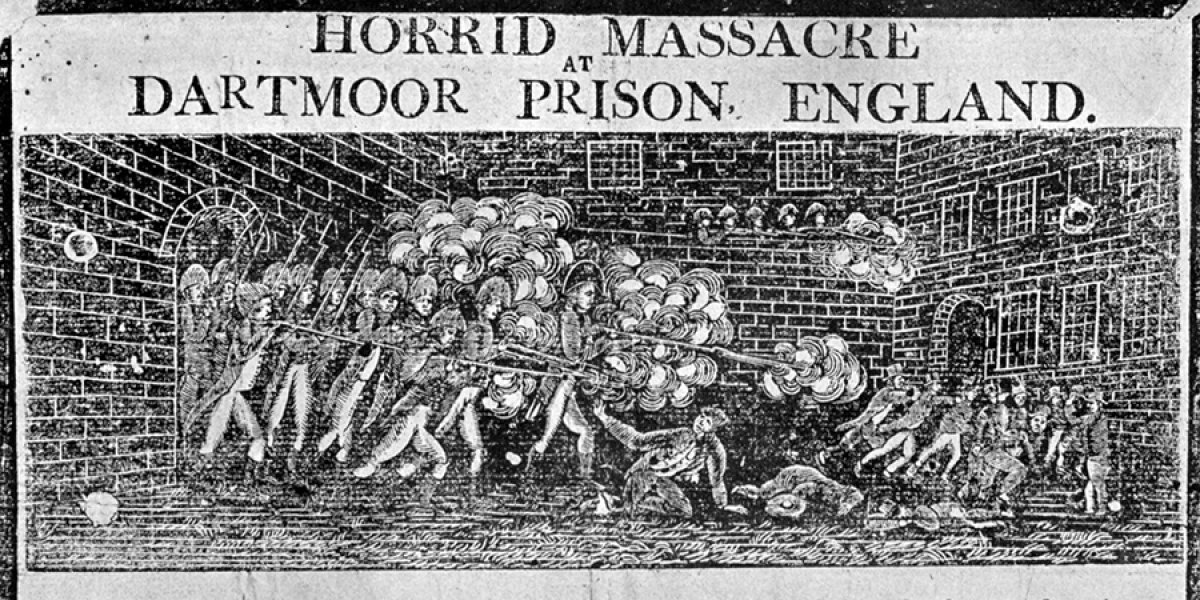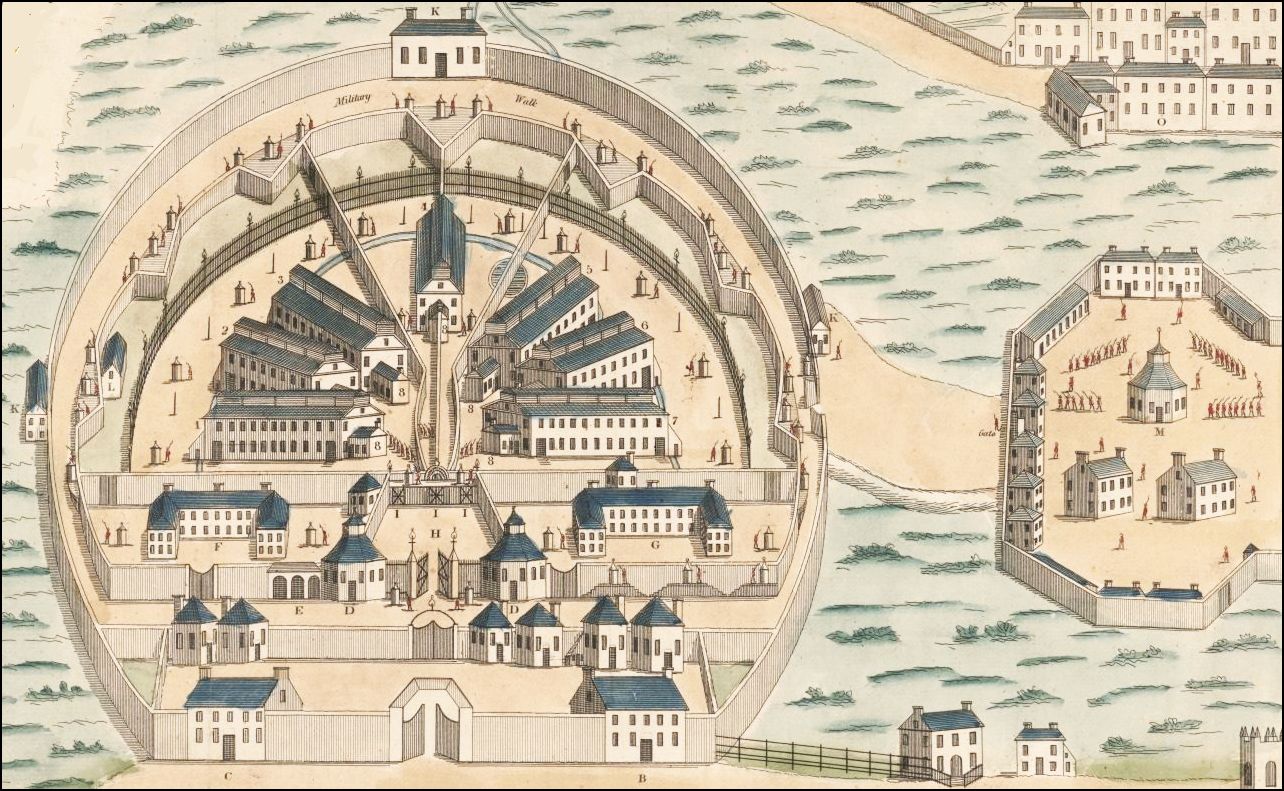Authors:
Historic Era: Era 3: Revolution and the New Nation (1754-1820s)
Historic Theme:
Subject:
October 2022 | Volume 67, Issue 5


Authors:
Historic Era: Era 3: Revolution and the New Nation (1754-1820s)
Historic Theme:
Subject:
October 2022 | Volume 67, Issue 5

Editor’s Note: Nicholas Guyatt is a historian, the author of six books, and a lecturer in modern history at the University of Cambridge. His most recent book is The Hated Cage: An American Tragedy in Britain’s Most Terrifying Prison, from which he adapted this essay.
There were dead Americans in the yard. It was dark now and Frank Palmer didn’t know how many. Dartmoor prison, perched on high moorland in southwest England, was a place where even the British thought the weather was bad. The morning of April 6, 1815 had felt like the first day of spring, but the rare opportunity to spend time outdoors had only exposed the prisoners’ restiveness. The War of 1812 had been over for two months, and more than five thousand Americans were still locked within Dartmoor’s massive walls.
In the afternoon, hundreds of them had started an impromptu fight, throwing mud at each other and then at the British soldiers who were guarding them. The commotion made it easy to miss the smaller crowd of prisoners who were trying to punch a hole in the inner wall between the prison yard and the barracks building. Surely they didn’t think they could escape from Britain’s most fearsome prison? After the winter just gone, the guards believed the Americans capable of anything. When the “sport” in the yards led to the breaching of the prison’s inner wall, the situation deteriorated rapidly.
The shooting started after six in the evening. Palmer ran back to his prison block and cowered for an hour or more, listening helplessly to the screams. As British soldiers moved through the yard, prisoners fell in all directions. Crowds of Americans ran to the prison blocks and thrashed against the locked doors. The guards fired on them, too.
See also “The Paradox Of Dartmoor Prison”
by Reginald Horsman in the February 1975 issue
Frank’s estimation of “British humanity” had never been high. During the eighteen months he’d spent as a prisoner of war — in Bermuda, Canada, and now in Britain — he’d recorded terrible things in his diary. But nothing had prepared him for the guards firing into the prison blocks, through the doors and narrow windows, “killing and wounding without mercy” even those Americans who had tried to shelter from the trouble.
